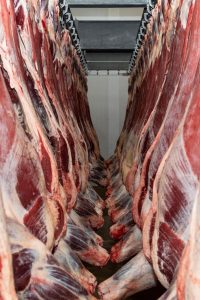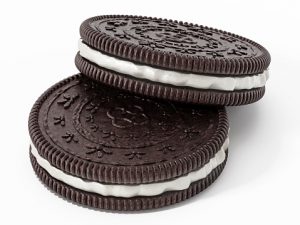Part 1
‘Stunning to me is like arguing that it’s kinder to bash someone over the head to knock them out before you stab them through the heart.’ …Neil Payne.
How did Poland and Denmark raise profile of religious slaughter and factory farming?
By banning religious slaughter, Halal and Kosher, on grounds of inhumane treatment of animals. But, did it also cast a light in the darker world of factory farming!
In the far-reaching words of the Danish Minister of Agriculture, ‘…animal welfare takes precedence over religion …’ These six words reached the four corners of the Muslim (and Jewish) world, and opened a window for understanding ‘animal welfare’ in the Minister’s ‘backyard!’
Let’s see the record on ‘animal welfare,’ our responsibility towards breeding and raising an animal in captivity for human consumption, and their alleged ‘humane’ living quarters, i.e., factory farming.
Factory Farming
Is factory farming about animals undergoing painful mutilations, like removal of chicken’s beak, or force-feeding, like geese and ducks, to grow unnaturally fast and large for the purpose of maximizing food industry profits via increased output of meat and egg production? Will the animal’s body support this growth, whilst they are ‘sardined’ in cage where they cannot spread their wings, hence, encountering pain and deformities?
Will the extensive use antibiotics on these animals, ‘living or surviving’ in unsanitary, stressful, and overcrowded conditions, have an adverse impact on human health due to drug resistant bacteria?
[Is vegetarianism a viable option for lifelong consumers of meat/chicken? Or will they look at free range, non-GMO fed meat/chicken, i.e., organic?]Furthermore, does factory farming create an undue burden on natural resources as the waste created by so many animals confined to in one place pollutes the land and water? Will residents living near factory farms report high incidents of illness? What about their property values?
Animal Welfare
Why do ‘they’ care so much about animal’s death, when paid little attention to their ‘sardine’ life in captivity?
A sampling peek at factory farms should make the Danish Minister and John Blackwell, the incoming President of British Veterinary Association, recently stated ‘killing animals by letting them bleed to death after slitting their throats causes unnecessary suffering,’ revisit their thoughts, approach and words on ‘animal rights’ at home before make statements on religious slaughter.
From the website of the Humane Society of the United States (HSUS):
‘HSUS investigators found suffering beyond belief at Iron Maiden Hog Farm: mother pigs imprisoned in painfully tight crates, disease killing more than 900 piglets in days, and those piglets being ground up and fed to their own mothers.’
‘Perhaps the most abused farm animals, nearly 280 million laying hens in the United States are confined in barren wire battery cages so restrictive the birds can’t even spread their wings … Like swine flu, bird flu is a product of the cruel conditions on factory farms…’
From the website of People for Ethical Treatment of Animals (PETA):
“The factory farming industry strives to maximize output while minimizing costs—always at the animals’ expense. The giant corporations that run most factory farms have found that they can make more money by cramming animals into tiny spaces, even though many of the animals get sick and some die. The industry journal National Hog Farmer explains, “Crowding pigs pays,” and egg-industry expert Bernard Rollins writes that “chickens are cheap; cages are expensive.”
Animals in Islam
There is not an animal on earth, nor a bird that flies on its wings, but they are communities like you…Qur’an 6:38.
Islam’s compassion and mercy extends beyond man to all living creations of the Creator. Nearly 1400 years ago, pre-dating the publication of Peter Singer’s book, “Animal Liberation,” in 1975, about animal rights, Islam (and Judaism) explicitly prohibited cruelty and encouraged kindness to animals.
It was narrated, ‘the Prophet of Mercy spoke of God’s forgiveness due to the humane treatment of animals. He told his companions the story of a man who climbed down a well to quench his thirst. As he came out, he saw a panting dog licking on mud out of extreme thirst and thought, ‘this dog is thirsty as I was!’ The man went down the well again for the dog. God appreciated his good work and forgave him. The companions asked, ‘O Prophet of God, do we get rewarded on humane treatment of animals?’ He said, ‘There is a reward in (doing good to) every living being.’ Saheeh Al-Bukhari
‘There are over two hundred verses in the Qur’an that deal with animals, and six suras (chapters) of the Qur’an are named after animals.’ Source: “Animal life” in the Encyclopaedia of the Qur’an.
In the next few columns, we will cover religious slaughter, including faith based food ‘partnership’ between Muslims and Jews, animal pain, halal foods building bridges to organic, and halal as an asset class.




